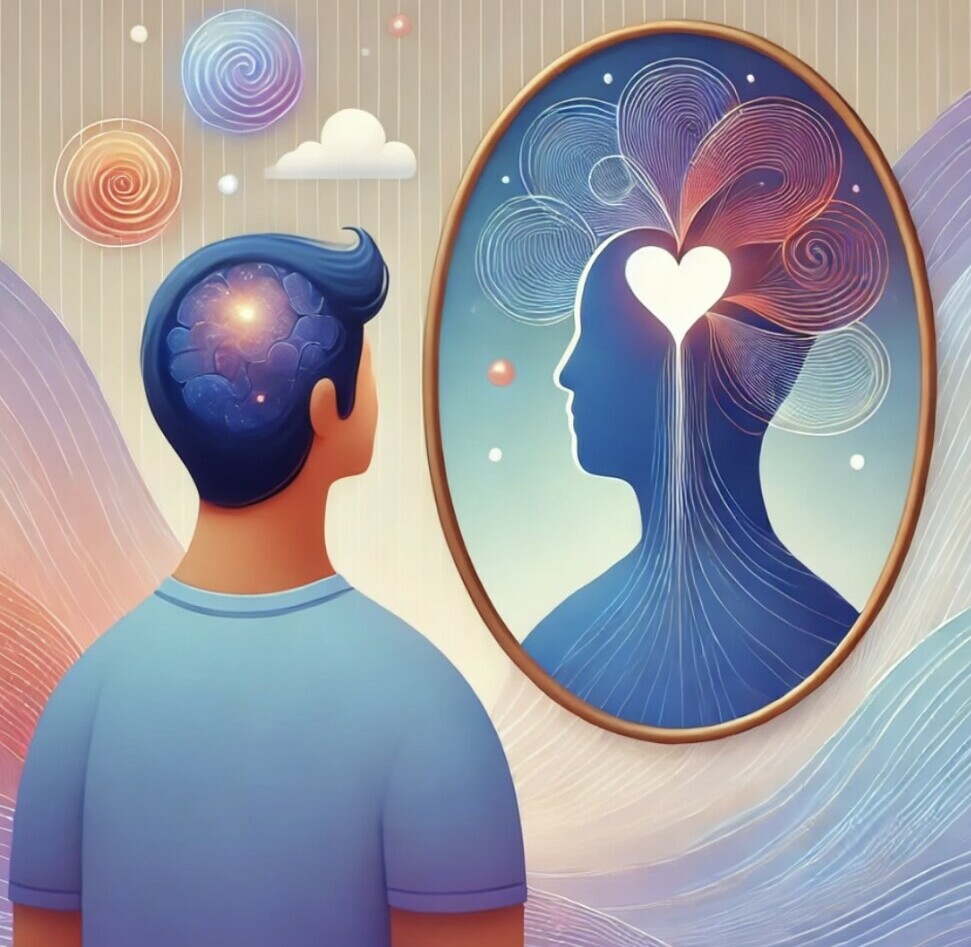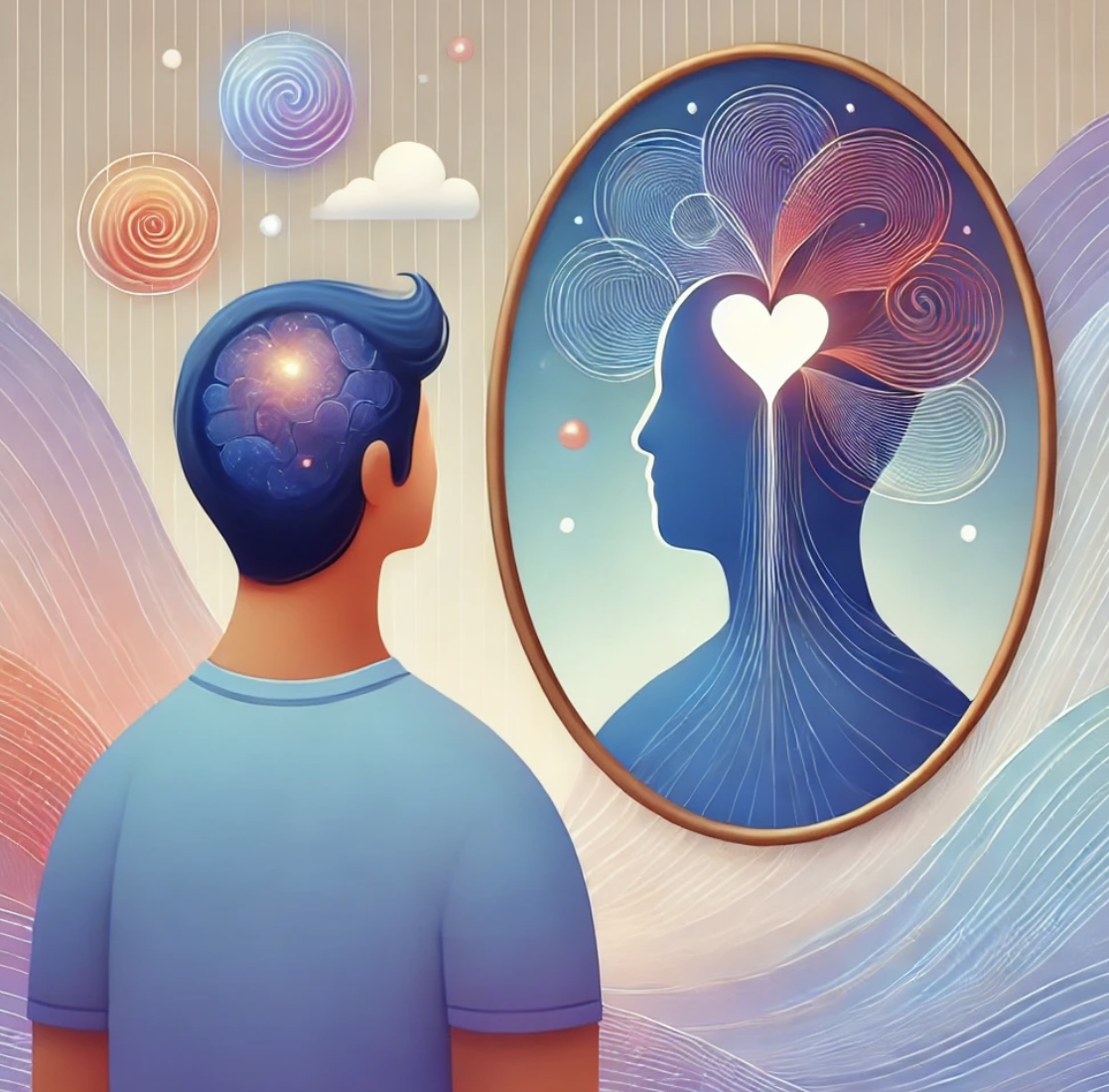
Self-awareness is about recognizing and understanding your own emotions, thoughts, and behaviors. Think about it: ever caught yourself reacting in a way that’s out of character? That’s the lack of self-awareness playing a trick on you. So, what is the importance of self-awareness? Knowing yourself inside out helps in designing a more authentic life.
You might wonder where this concept comes from. Self-awareness has roots in psychology and philosophy. It’s the ability to step outside oneself and see the inner workings of your mind. Early thinkers like Socrates famously said, ‘Know thyself.’ Modern psychology took it further by linking self-awareness to emotional intelligence and mental health.
What makes self-awareness critical in personal development? When you understand your emotions and why you react a certain way, you’re in control. Imagine navigating life’s ups and downs with a clear head, knowing exactly what triggers your stress or joy. That’s the power of self-awareness, making it the cornerstone of emotional intelligence.
Now, take a moment and look around you. Daily life is full of examples of self-awareness. Ever seen someone check their tone during a heated conversation or someone recognizing their burnout before it hits hard? These actions come from a keen sense of self-awareness, shaping better responses and decisions every day. It’s a simple yet powerful tool in our personal growth toolbox.
The Role of Self-Awareness in Improving Emotional Intelligence
Emotional intelligence (EI) can completely transform how we interact with others and navigate life’s challenges. The backbone of EI is self-awareness. Without it, you’re like a ship without a compass—you might move forward, but you’re more likely to end up lost.
Emotional intelligence consists of several key components: self-awareness, self-regulation, motivation, empathy, and social skills. Among these, self-awareness comes first. It’s the foundation on which the other elements build. When you master knowing your own emotions and reactions, regulating them becomes simpler.
High emotional intelligence is your ticket to better personal and professional relationships. Imagine understanding your emotions and using that insight to manage how you interact with others. No more regrettable outbursts or misunderstood intentions. Just clear, effective communication and healthier connections.
So how do you enhance self-awareness to boost your EI? Start by paying attention to your emotional triggers. Are there specific situations or people that get under your skin? Reflect on why that is. Journaling your daily interactions and emotions can also offer insights into patterns you might not notice otherwise.
For leaders, self-awareness is practically a superpower. A leader who knows their strengths and weaknesses is more likely to lead effectively and empathetically. They can inspire their team, make informed decisions, and create a positive work environment. In short, self-awareness makes good leaders great.
Self-Awareness and Its Impact on Mental Health
Self-awareness isn’t just good for your social skills—it can be a game-changer for your mental health. By understanding your emotions, you can manage stress and anxiety better. Think of it as having an owner’s manual for your mind. You know what works, what doesn’t, and how to keep things running smoothly.
There’s a solid connection between being self-aware and maintaining good mental health. When you know what triggers your stress or negative emotions, you can take steps to avoid or manage these situations effectively. This proactive approach can make a huge difference in your overall well-being.
Understanding your own mental state helps you recognize when something feels off. Early identification means you can seek help before things get worse. It’s like catching a cold before it turns into the flu. Self-awareness allows you to notice those initial signs and take action.
There are several techniques you can use to boost self-awareness for better mental health. Mindfulness exercises, such as meditation, can help you become more attuned to your thoughts and feelings. Journaling can also provide a space for you to reflect on your day and notice recurring patterns or stressors.
Consider therapy or counseling as well. Talking to a professional can give you new perspectives and tools for understanding yourself better. Your journey to mental wellness can be smoother with guided help, and it’ll equip you with more strategies to handle life’s hurdles.
Real-life examples speak volumes. Stories of people who have improved their mental health through self-awareness practices are inspiring. These individuals often report feeling more grounded, more in control of their emotions, and better equipped to handle stress.
Practical Strategies to Cultivate Self-Awareness
To really harness the power of self-awareness, you have to actively work on it daily. Imagine self-awareness as a muscle—the more you train it, the stronger it gets. Here are some game-changing strategies.
Mindfulness is a great place to start. It’s all about staying present and fully engaging with the here and now. When you’re mindful, you tune into your thoughts and feelings without getting caught up in them. Practices like meditation and deep breathing can help you build this skill.
Journaling is another powerful tool. Writing down your daily experiences and emotions can offer surprising insights. Over time, you’ll start seeing patterns in your thoughts and behaviors. Plus, journaling serves as a personal space to sort through complex emotions.
Feedback from others can also be invaluable. Sometimes, we have blind spots—we may not notice certain behaviors or traits in ourselves. Friends, family, and mentors can offer perspectives that you might miss. Just be open to listening and reflecting on their feedback.
Therapy or coaching sessions can provide structured environments to deepen your self-awareness. Professionals can guide you through exercises and conversations designed to reveal insights about yourself. Think of it as having a workout plan for your mind and emotions.
Don’t forget about the small, everyday practices. Pause throughout your day to check in with yourself. How are you feeling? Why do you think that is? These small reflections can make a big difference over time. They keep you tuned into your emotional landscape, allowing you to adjust your actions and responses.
The Long-Term Benefits of Self-Awareness in Personal and Professional Life
Better decision-making is one of the most impactful benefits of enhanced self-awareness. When you understand your feelings and motives, you’re in a better position to make choices that align with your true self.
Communication and relationship-building skills also get a boost. Knowing your strengths and weaknesses allows you to interact more effectively with others. You’ll become more empathetic and better at managing conflicts.
Career growth can also soar. Employees who are self-aware tend to excel in their roles, as they are more attuned to their performance and areas needing improvement. This often leads to better job satisfaction and career advancement.
On a personal level, self-awareness leads to increased satisfaction and resilience. When you understand yourself, you can set realistic goals and expectations, reducing stress and disappointment. You’ll bounce back from setbacks more quickly and with a clearer vision for the future.
Inspiring stories are all around us. People who have cultivated strong self-awareness often share how their lives have transformed—whether it’s mending strained relationships, achieving career milestones, or finding true inner peace. These stories can serve as motivation for your own self-awareness journey.

